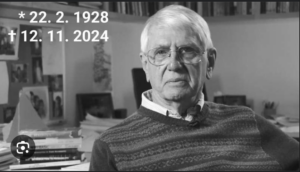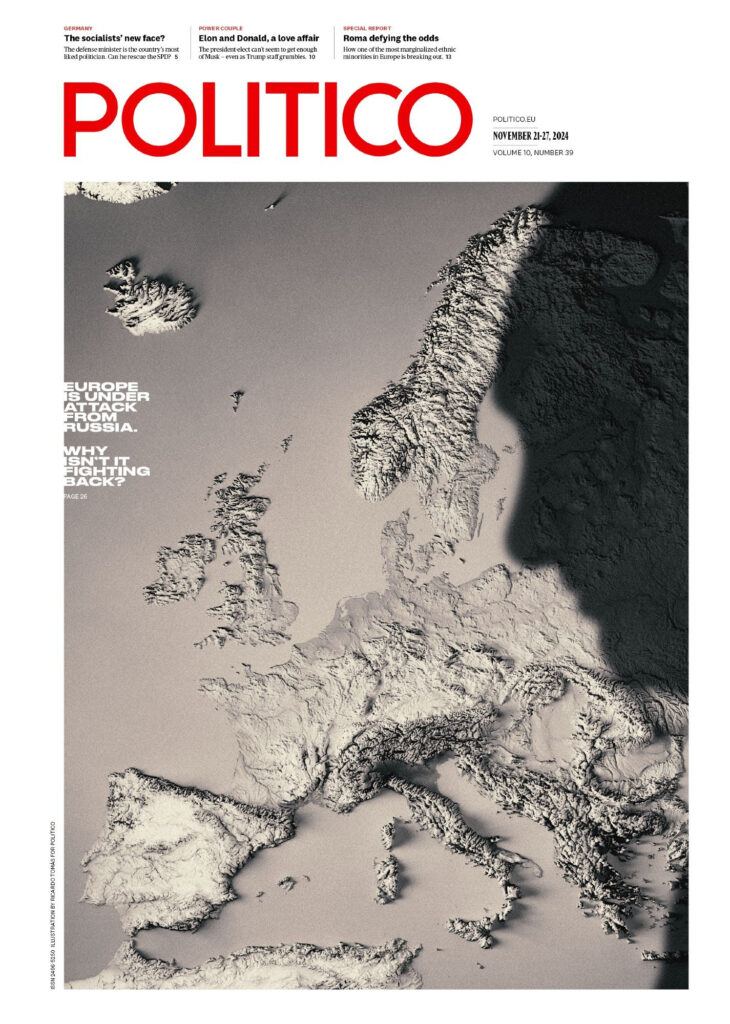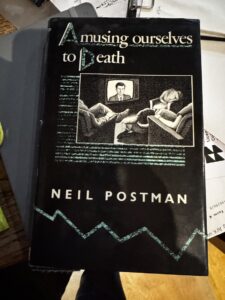Banksy woz here

Bristol.
Quote of the Day
”Time may be a great healer, but it’s a lousy beautician.”
- Dorothy Parker
Musical alternative to the morning’s radio news
Ludovico Einaudi | Maria Callas
Long Read of the Day
The Israel-Gaza tragedy and Europe’s responsibility
Timothy Garton Ash is one of the wisest and best-read people I know, and his Substack makes for compelling reading. But this latest essay in particular stands out.
Here’s a sample:
I have not written about Gaza before for one simple reason: I try to write about things I know about. I have no expert knowledge of the Middle East, nor anything to contribute from first-hand experience there. Yet the relentless daily scenes of innocent suffering, Palestinian and Jewish (in the case of the hostages and their relatives), have become so overwhelmingly oppressive to the spirit and conscience that in the end I feel compelled to do so. As Bertolt Brecht wrote, there are times when ‘a conversation about trees is almost a crime/ because it involves being silent about so many misdeeds’.
I do worry about the danger of purely performative virtue-signalling. (A recent protest letter signed by a long list of writers contains the portentously self-important formulation ‘this is about our moral fitness as the writers of our time’.) I’ve no illusion that what I say will change anything, except perhaps to a tiny degree in some corner of the European debate. But through the personal, informal format of a Substack newsletter – not a final, finished article – I can try to think aloud about one aspect of this tragedy close to both my personal and professional concerns: Europe’s responsibility.
For a start, let’s be clear: this is a European story. It was the pogroms of the late 19th and early 20th century, mainly on the territory of the Russian Empire, that kickstarted the waves of Jewish emigration to Palestine. The Zionists shared with many others in central and eastern Europe at that time the conviction that only having your own sovereign state would secure your people’s safety, freedom and collective future. It was then Nazi Germany’s attempt to exterminate all the Jews of Europe, now widely known as the Holocaust or Shoah, that gave the decisive push for both the creation of the state of Israel and widespread international acceptance of its legitimacy. In that sense, the innocent Palestinians who were driven out of their homes and off their family lands in 1948 – and since – have been paying the price for European barbarism.
This historic responsibility has led many Europeans, and especially Germans, to feel a very special sympathy for and responsibility towards the Jewish state. I feel it very strongly myself. Ever since I started studying the history of Nazi Germany some 50 years ago, the Holocaust has been central to the way I think not just about Europe, and what we are trying to do on our own continent, but also about how Europeans should speak and act in the world. If I’m honest, I hate to think, and even in my heart of hearts find it difficult to accept, that a Jewish state can behave in this way…
Do read it. What it brought back to me was Auden’s poem “September 1, 1939” and especially its closing lines.

Screenshot
My commonplace booklet
I enjoyed “”Parodies Lost”, Dave Pell’s take on the Trump-Musk flame war.
You can’t parody the intersection between tech billionaires and geopolitics. No matter how ridiculous and offensive the scenarios you manage to conjure from even the darkest and most devilish recesses of your imagination, reality will blow it away.
Indeed, it took less than a week for our sadly non-fiction state of affairs to bring us an all too real fight between a criminal billionaire president and an evil super billionaire tech bro, each armed with their own social media platforms as they engaged in a flame war that shook governments, moved markets, gripped the media, and enraptured the world. Even though the devolution of the world’s most world-damaging bromance was predictable (spoiler alert: no town is big enough for that much sociopathic malignant narcissism), its actual realization left me nostalgic for the quaint world depicted in parodies and satires, and even more so for the days when the worst thing you saw on social media was someone trying to make their family vacation look a little better than it actually was.
While the flame war was funny, its underlying meaning is anything but. It’s a reflection of where we are in America, with way too much power and wealth in the hands of a few—and the wrong few at that. Does the future of America come down to an evil billionaire vs an evil dictator? Maybe we all need some ketamine. This is a lose-lose fight with the American people coming out as the biggest losers of all.
This Blog is also available as an email three days a week. If you think that might suit you better, why not subscribe? One email on Mondays, Wednesdays and Fridays delivered to your inbox at 5am UK time. It’s free, and you can always unsubscribe if you conclude your inbox is full enough already!










